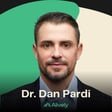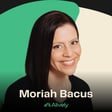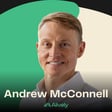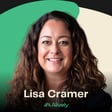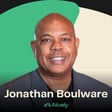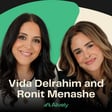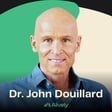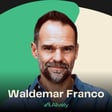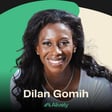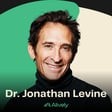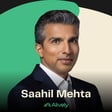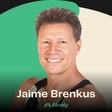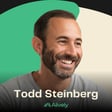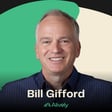
Improve Sleep Quality As A Busy Parent with Kristin Oja - E35
Constantly feeling like you aren't getting enough sleep? Are you juggling what feels like an endless list of demands as a parent and partner, all while holding down a job?
Many parents find it difficult to get good quality sleep amidst the chaos of raising kids, leading to a constant state of fatigue and decreased well-being. Navigating this stage of life with sustained energy and vitality may seem daunting, especially when sleep is disrupted by your children. In this episode, we explore first-hand advice and routines for improving sleep quality, empowering you to reclaim restful nights and enhance your overall health as a parent.
Kristin Oja is the founder of STAT Wellness, as well as a nurse practitioner. She is dedicated to enhancing overall wellness through individualized health strategies. WITH her work at STAT Wellness, she combines her extensive knowledge and experience to provide comprehensive healthcare solutions. Highlighting the importance of sleep, nutrition, and social connectivity, Kristin's insights resonate with her audience online, through her podcast, 'Little By Podcast' and as a seasoned keynote speaker. She champions a practical, hands-on and holistic approach to health, advocating for a balance between advancing personal goals and maintaining life’s inherent enjoyments.
“Just laying in the bed does not mean your sleep quality is good.” - Kristin Oja
In this episode you will learn:
- The importance of differentiating between being and doing in everyday life and how it impacts overall happiness and quality of life.
- Strategies for maintaining a sleep routine and the significance of sleep quality, including insights on alcohol consumption and work habits before bedtime.
- How to create effective daily routines through habit stacking, combining tasks like workouts, sauna sessions, and setting mental triggers for relaxation.
- The value of social connection and purpose in wellness, alongside tips for deliberately crafting space for these pillars in life.
- Benefits of creating a stillness practice as a means to gain clarity, presence, and improve one's interpersonal connections.
- Nutrition advice and recommendations for incorporating dietary supplements, with emphasis on protein intake and the role of whole foods and meal diversity.
Resources
- Connect with Kristin on Instagram: https://www.instagram.com/kristinojadnp
- Find out more about what STAT Wellness has to offer: https://www.statwellness.com
- Shop all the products Kristin mentions in this episode: https://alively.com/products/kristin-oja
This podcast was produced by the team at Zapods Podcast Agency:
https://www.zapods.com
Find the products, practices, and routines discussed on the Alively website:
https://alively.com/

